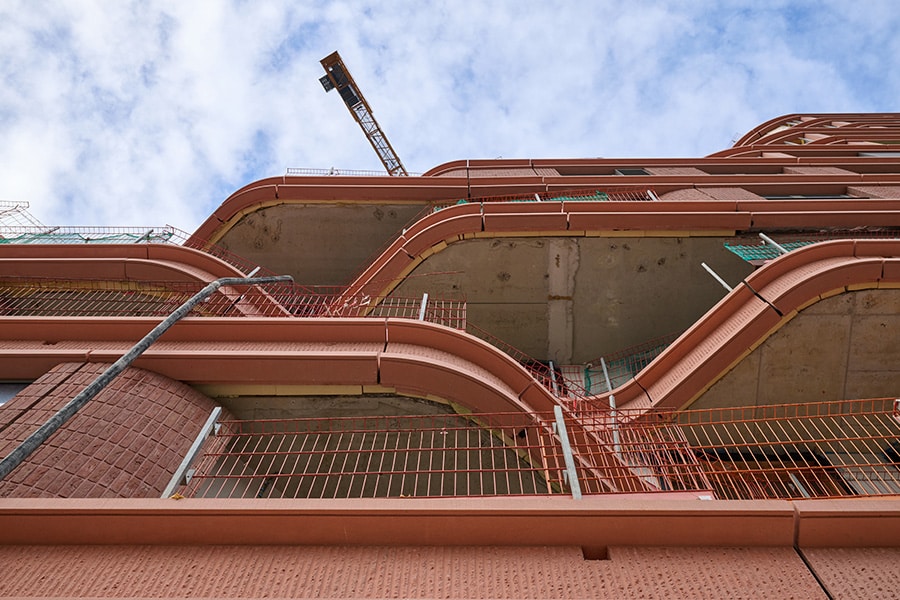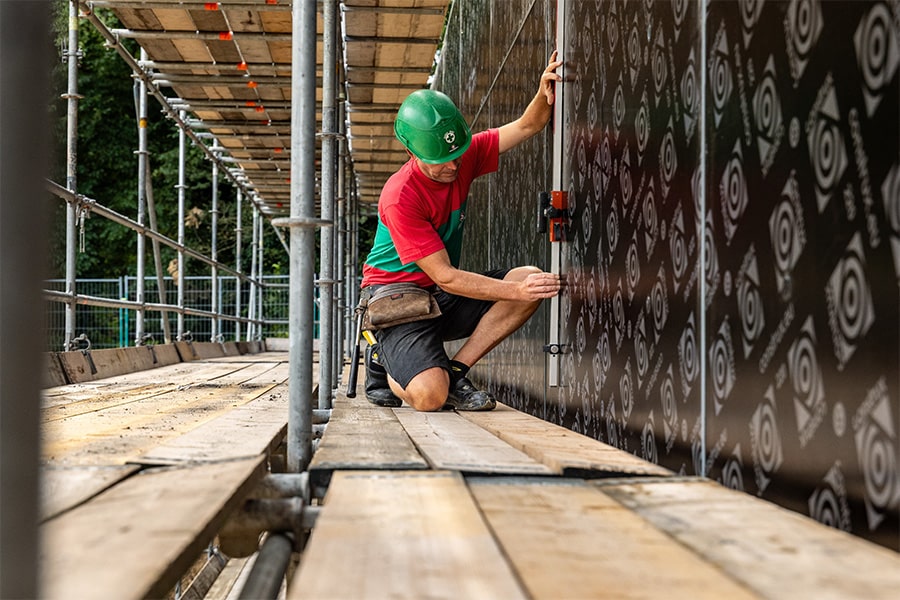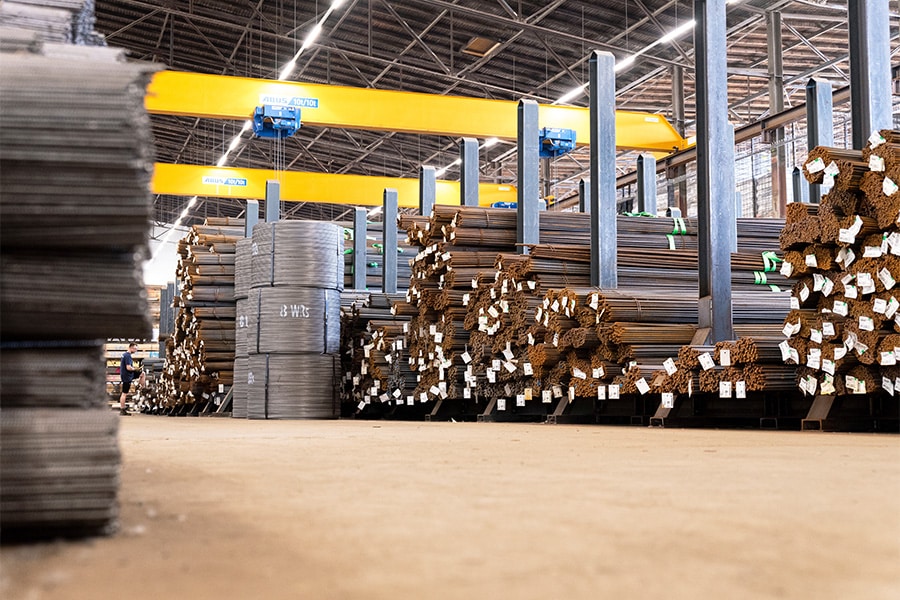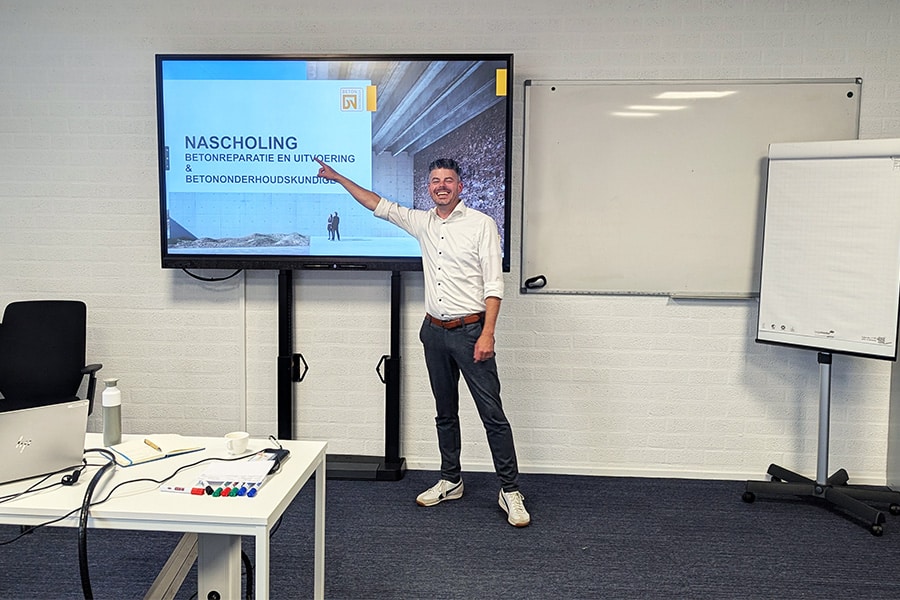
Brushing up on concrete knowledge through the Concrete Association
Since 1927, the Concrete Association has been connecting governments, builders, consultants and knowledge institutes. The goal is to share and disseminate knowledge so that we promote the technically sound application of concrete. At all levels. Training is a very important part of this, so that everyone handles the material efficiently, safely and effectively. Let's zoom in on the extensive training offer and talk to some experts by experience.
"The mission to promote the responsible use of concrete has been in our bylaws since 1927," begins Chantal Mülders, Program Manager for Training and Courses at Concrete Association. "For about 70 years, we have been promoting that with our training program. This has steadily expanded since then to the 40 courses and trainings we now provide. The offerings are divided into five areas: Cement and Concrete Technology, Sustainability and Circularity, Maintenance and Repair, Design and Construction and finally Work Preparation and Execution. Some courses or programs require no specific prior knowledge, for others a mbo or hbo degree is a must. You will find this division in each domain. Within the Cement and Concrete Technology domain, for example, we provide entry-level courses such as Basic Knowledge of Concrete General to courses that provide in-depth training for qualified concrete technologists."

New courses
Mülders says the Concrete Association is always expanding its offerings and aligning them with the latest developments and laws and regulations. "We recently launched a course on the revision of the Eurocode that is coming up. We see a role for us to inform structural engineers and others about this. But it may also be that we ourselves see developments in the market or that our members inform us of important topics that are suitable for a course or training. We then set to work with a development team of subject matter experts. This is how we design a thorough training course that we can offer to the market." In doing so, the Concrete Association works with teachers from the field. "They bring a tremendous amount of experience and recognize the specific situations that participants bring in." Lecturer Bas Bruins Slot can attest to that. In daily life, he is group leader of sustainable construction with concrete at Witteveen+Bos and has been a lecturer at the Concrete Association for thirteen years. "Apart from transmitting, I find retrieving stories of experience at least as valuable to discuss them with all of us from different perspectives."
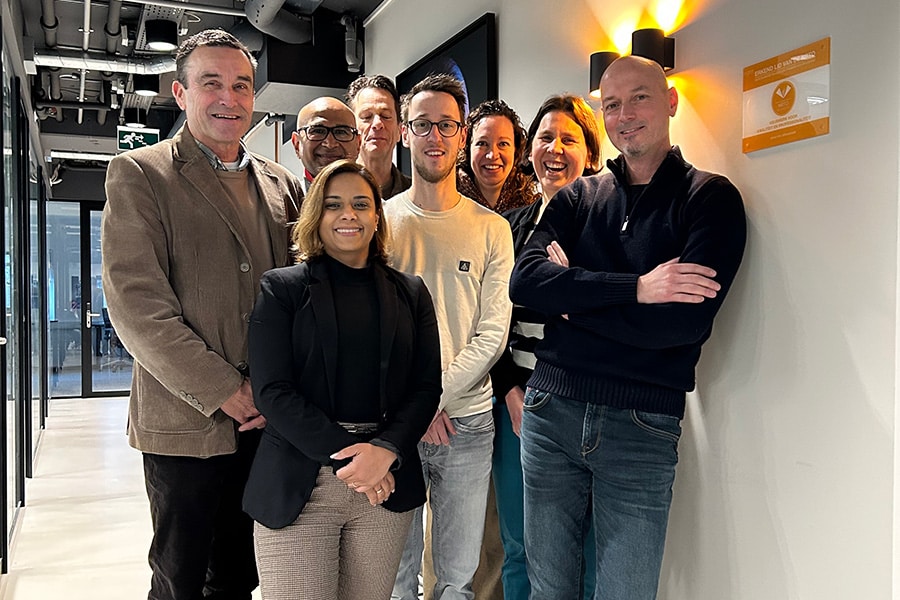
Valuable insights
Bruins Slot graduated from TU Delft in 2008 in civil engineering. "I started my career as an inspector/consultant of concrete structures. It already surprised me back then that so many construction and execution errors are made. And that hasn't actually changed in all these years. That is also my motivation to teach. It is often not done wrong on purpose, but it is mainly due to lack of proper knowledge. For example, if you pour concrete, you have to treat it immediately and make sure that the water stays in it. If you don't do that, you run the risk that the outer layer of concrete will be of poor quality. As a result, you get a much shorter lifespan than you might expect based on the design. With our courses, among other things, we give participants more insight into why they should do a certain operation. And why it is so important to spend an extra hour on Friday afternoon after pouring to cover the freshly poured concrete neatly. With that you achieve a tremendous sustainability gain." Bruins Slot has taught the Concrete Repair Execution course for Middle Management for more than twelve years and now, together with other colleagues, provides the refresher course for concrete repair project managers and concrete maintenance experts.

Broadly involved
The great thing about Witteveen+Bos is that it is not only a company member of the Concrete Association, but also actively engages with the association, notes Mülders. "We see the company at our events and employees regularly join our training courses and fulfill a role as lecturers. Being a lecturer in turn requires different and new skills from a person, who can also develop in this way. The knife then cuts both ways." Bruins Slot adds: "It is indeed interesting on several levels to be involved with the Concrete Association as a lecturer. You know what is going on in the sector and keep your knowledge up to date. Moreover, there is plenty of room to spar with other experts in the field. I also find the practical experiences shared by course members very valuable. Sometimes trainees don't get the opportunity to do better on the job because their schedules are too tight. That's something that we at Witteveen+Bos may be able to manage. We are often on the design side and should take into account the constraints in execution. In that way, too, we can exert influence to ensure that a more sustainable end product is created."
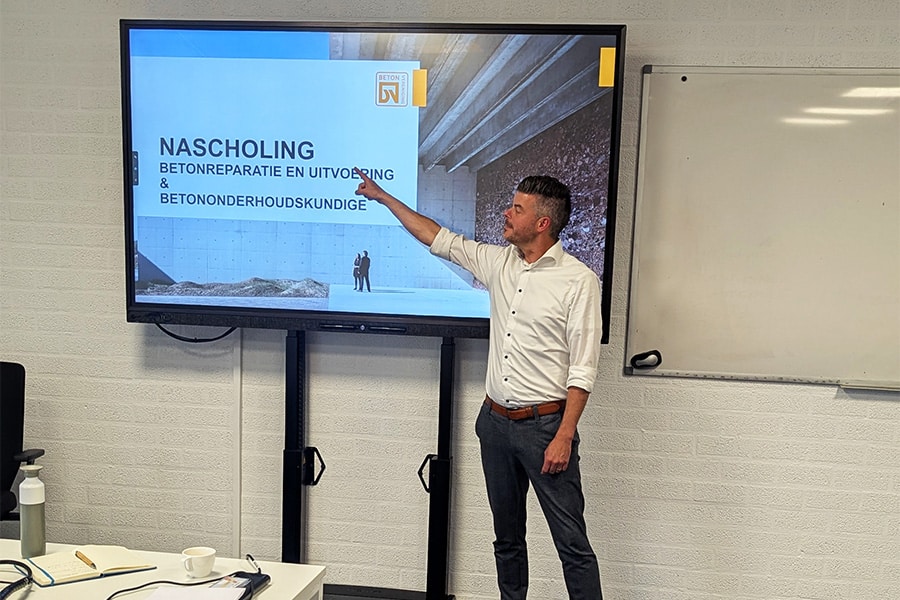
NRTO Seal of Approval
Since December 2024, the Concrete Association has had an NRTO seal of approval. The Dutch Council for Training and Education (NRTO) is a trade association for private trainers. Mülders: "The NRTO hallmark shows that we stand for quality and professionalism. Our clients can assume that we meet high quality standards in terms of transparency about products and services, adequate service, professional dealings with clients and staff expertise." Sounds good, but how is that perceived in practice? We ask Diederik Lagerweij, civil construction inspector at Witteveen+Bos. He has now taken seven courses with the Concrete Association and is rightly an expert by experience. "I have a background in structural engineering and have been working at Witteveen+Bos for thirteen years now. One of the first courses I took at the Concrete Association was the Inspection and Management of Works of Art course. It consisted of several modules and included performing condition inspections, condition measurements and risk-based inspection. The knowledge gained was really very valuable to me and I could immediately apply it in practice."

Mix of participants
Lagerweij then took a number of 1-day courses related to concrete maintenance and repair and, several years ago, the Concrete Maintenance Specialist course. "The most recent course is Cathodic Protection Module 1," he says, adding that the courses have always met his expectations. "They are well organized and arranged, the course material is engaging and you can apply it directly in practice. The teachers are all enthusiastic and come from the field. The latter also makes it pleasant to listen to, very often practical examples are discussed. What also makes it interesting is that in the courses and trainings you meet a broad mix of participants, working for governments, engineering firms and contractors. Everyone has their own view of something and experiences their own problems. And space is made for that to be discussed centrally. For me personally, very interesting to hear some issues from the other side of the table as well." Lagerweij has already put another course on his list. "I understood that in September the course Reuse Existing Structures starts. Reuse of materials has been top of mind in projects in recent years, so there's a good chance I'll be taking this course."
Learning and development
At Witteveen+Bos, employees are given every opportunity to develop. "Our policy on training and education is twofold," says Renske Boswinkel, learning and development consultant in the HR department at Witteveen+Bos. "We encourage our employees to keep learning. They can decide for themselves in which area they want to brush up their knowledge, in consultation with their manager, and which party can best provide that. On the other hand, we lean heavily on Jennings' model, which states that learning must come from a variety of sources. You learn by doing difficult tasks at work and raising the bar a little higher and higher in them, but also by sparring with colleagues who are just a little further ahead than you are, and of course by taking courses." Bruins Slot: "The training program offered by the Concrete Association is designed to do just that and connects perfectly with the field. Students can immediately apply the knowledge they have gained in practice."
The Concrete Association does not have its own training space. "We rent locations throughout the country, as close to the trainees as possible," Mülders said. "We also offer online courses, which participants can complete in their own time and at their own pace. The online offerings are currently still fairly limited, but we want to expand that in the future."
